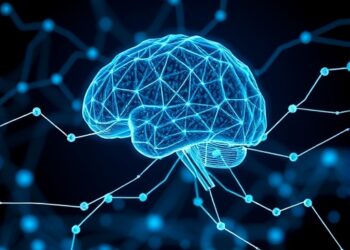People can reduce their risk of age-related dementia by exercising their brains properly instead of Googling, according to a leading Canadian academic.
People can reduce their risk of age-related dementia by exercising their brains properly instead of Googling, according to a leading Canadian academic.
Professor Mohamed I. Elmasry says simple daily habits such as afternoon naps, memory ‘workouts’ and not reaching for a smartphone can increase the odds of healthy aging.
His new book, iMind: Artificial and Real Intelligence (with foreword by Canadian cell biologist Dr. Aileen Burford-Mason), says the focus has shifted too far away from RI (natural, or real) intelligence in favor of AI (machine, or artificial) intelligence. Elmasry instead calls us to nurture our human mind which, like smartphones, has ‘hardware’, ‘software’ and ‘apps’ but is many times more powerful – and will last much longer with the right care.
Professor Elmasry, an internationally recognized expert in microchip design and AI, was inspired to write the book after the death of his brother-in-law from Alzheimer’s and others very close to him, including his mother, from other forms of dementia.
Although he says that smart devices are ‘getting smarter all the time’, he argues in iMind that none comes close to ‘duplicating the capacity, storage, longevity, energy efficiency, or self-healing capabilities of the original human brain-mind’.
He writes that: “The useful life expectancy for current smartphones is around 10 years, while a healthy brain-mind inside a healthy human body can live for 100 years or longer.
“Your brain-mind is the highest-value asset you have, or will ever have. Increase its potential and longevity by caring for it early in life, keeping it and your body healthy so it can continue to develop.
“Humans can intentionally develop and test their memories by playing ‘brain games,’ or performing daily brain exercises. You can’t exercise your smartphone’s memory to make it last longer or encourage it to perform at a higher level.”
In iMind: Artificial and Real Intelligence Professor Elmasry shares an anecdote about his grandchildren having to use the search engine on their smartphones to name Cuba’s capital—they had just spent a week in the country with their parents.
The story illustrates how young people have come to rely on AI smartphone apps instead of using their real intelligence (RI), he says, adding: “A healthy memory goes hand-in-hand with real intelligence. Our memory simply can’t reach its full potential without RI.”
Published by Routledge, iMind: Artificial and Real Intelligence includes extensive background on the history of microchip design, machine learning and AI and their role in smartphones and other technology.
The book also explains how both AI and human intelligence really work, and how brain function links the mind and memory. It compares the human mind and brain function with that of smartphones, ChatGPT and other AI-based systems.
Drawing on comprehensive existing research, iMind aims to narrow the knowledge gap between real and artificial intelligence, to address the current controversy around AI, and to inspire researchers to find new treatments for Alzheimer’s, other neurodegenerative conditions and cancer.
It argues that current or even planned AI cannot match the capabilities of the human brain-mind for speed, accuracy, storage capacity and other functions. Healthy aging, Professor Elmasry notes, is as important as climate change but doesn’t attract a fraction of the publicity.
He calls for policymakers to adopt a series of key reforms to promote healthy aging. Among such changes, he suggests that bingo halls could transition from their sedentary entertainment function to become active and stimulating learning centers.
As well as napping to refresh our memories and other brain and body functions, he also outlines a series of practical tips to boost brain power and enhance our RI (Real Intelligence).
These include building up ‘associative’ memory – the brain’s ‘dictionary of meaning’ where it attaches new information to what it already knows. Try reading a book aloud, using all of your senses instead of going on autopilot and turning daily encounters into fully-lived experiences.
Other techniques include integrating a day for true rest into the week, reviewing your lifestyle as early as your 20s or 30s, adopting a healthy diet, and eliminating or radically moderating alcohol consumption to reduce the risk of dementia.




